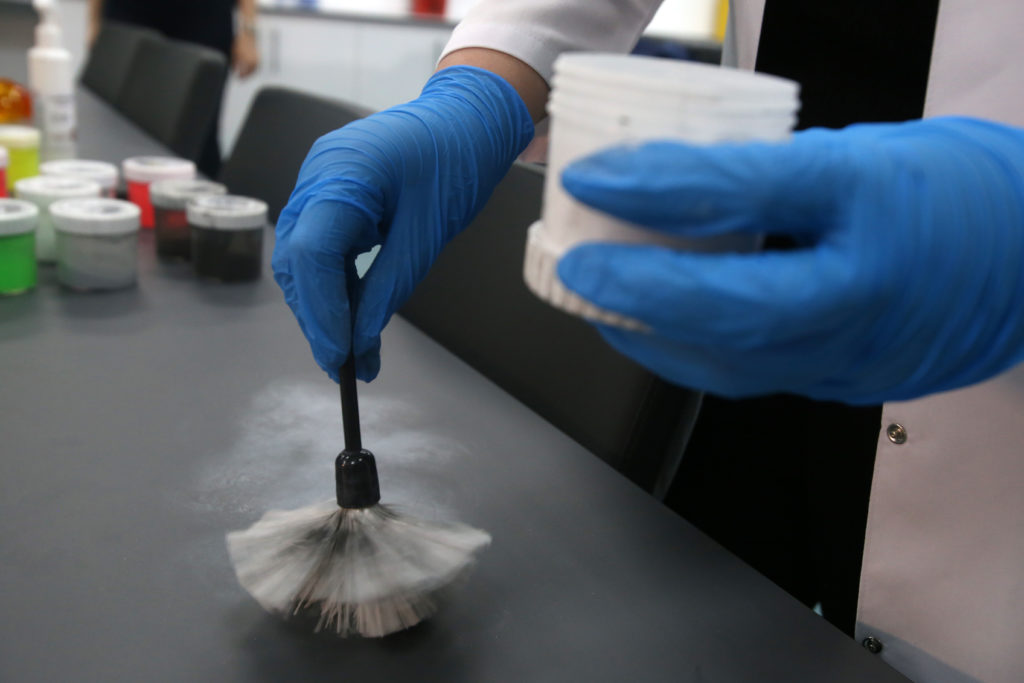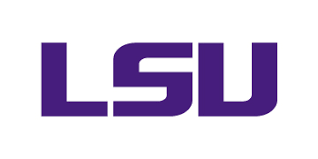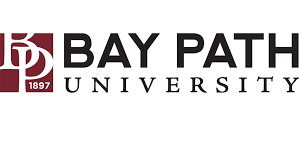The best online colleges in forensic psychology allow you to gain the psychological know-how and legal knowledge to work as a forensic psychologist. Some programs even culminate in a bachelor’s degree and a master’s degree.
Forensic psychology is increasingly popular thanks to its emphasis in big-name movies and TV shows. While Hollywood might embellish things a little, it’s still a highly popular and exciting field in which to specialize.
The work you do might range from interviewing criminals and their victims while supporting criminal investigations to preparing threat assessments for a political candidate. Forensic psychologists also train law enforcement in psychological principles, serve as expert witnesses in court, and conduct profiling of criminals that have fled police. Every day is different, making this one of the most exciting fields of psychology to practice.
See Also: How to Balance Work, Life, and an Online Psychology Degree
What Will I Learn in a Forensic Psychology Degree Program?
A bachelor’s degree in psychology introduces you basic psychological concepts. While you might take a class or two that focuses on forensics, the bulk of your undergraduate studies will be in other psychological topics, including:
- History and systems of psychology
- Psychological statistics
- Research methods in psychology
- Developmental psychology
- Physiological psychology
However, to be a forensic psychologist, you need more advanced training. In a forensic psychology concentration, you’ll usually take courses in:
- Abnormal psychology
- Legal psychology
- Criminology and Victimology
- Forensic assessment
- U.S. legal system and its processes
Some undergraduate programs have additional requirements beyond coursework. For example, you might participate in a practicum experience in which you job shadow a forensic psychologist. Doing so gives you insight into the competencies you need to focus on in your forensic psychology degree program. Likewise, you might take part in seminars in which experts in the field share their knowledge with you and other students.
In some instances, you can find undergraduate programs that have an emphasis in forensic psychology. Usually, though, accredited forensic psychology programs are only found at the graduate or doctoral levels.
See Also: 25 Online Master’s in Behavioral Psychology 2022 and 30 Accredited Psychology Programs Online
Do I Need a PhD to Become a Forensic Psychologist?
Usually, you need to attend one of the top forensic psychology PhD programs or complete another doctoral degree, like a PsyD, to get the best jobs in this field. However, you might find some careers that only require a master’s degree. In those instances, there’s usually an added requirement of having extensive experience working as a psychologist or in law enforcement (or both). Likewise, research positions in forensic psychology are often available to graduates of masters programs in this field.
What’s certain is that you can’t become a forensic psychologist if your highest level of education is a bachelor’s degree. But, you might find work as a research assistant or another junior position that gets you some experience in the field while you get your master’s degree and doctorate.
What are the Best Forensic Psychology Degrees?
Accredited Online College used the most recent data from the Department of Education’s National Center for Education Statistics to determine the rankings for good colleges for forensic psychology.
Each of the forensic psychology schools has an individual score. That score is compared to all other universities offering the same degree to determine the final score you see by each ranking. Accredited Online College considers several factors when scoring these programs, including:
- Affordability
- Student-to-faculty ratio
- Number of programs offered on-campus and online
Using these and other factors to determine these rankings, we’ve devised a reliable means to evaluate these programs for you. This means you don’t have to Google “forensic psychology best colleges” or “online degree forensic psychology.” Instead, we’ve done the heavy lifting for you!
To learn more about our ranking methods for colleges with good forensic psychology programs, visit our methodology page.
The Best Online Colleges for Forensic Psychology
#1. Liberty University
Topping our list of the best online forensic psychology programs is Liberty University. Liberty offers accredited online programs via distance learning through LU Online. This includes a Bachelor of Science in Psychology – Criminal Psychology.
This 120-credit-hour program is fully online. It takes around 3.5 years to complete, provided you study full-time. Yet, because it’s online with flexible classes, this program allows you to continue working while earning your degree.
In this program, you’ll take courses such as:
- Social Psychology
- Crisis Intervention
- Abnormal Psychology
- Psychology of Criminal Behavior
Each course is eight weeks in length. This accelerated format allows you to focus on fewer subjects at any given time. As a transfer student, you’ll have fewer courses to complete, anyway. Liberty University’s generous transfer policy allows up to 75 percent of the total degree credits to come from another accredited school.
The typical cost of tuition for a full-time, online undergraduate degree is around $390 per credit hour. For part-time students, this cost rises to $455 per credit hour. Active duty law enforcement and other first responders are eligible for a 25% discount. All students receive electronic textbooks at no additional charge.
#2. Arizona State University
At Arizona State University (ASU Online), you can earn an online bachelor of science in psychology with an emphasis in Forensic Psychology. This 120-credit-hour program typically takes four years of full-time study to complete.
Classes in this forensic psychology bachelor degree last 7.5 weeks on average. You’ll complete approximately 39 classes as part of the degree program. There’s also an alternative Bachelor of Arts program that focuses more on math and science as opposed to biological and neuroscientific understanding.
In this program, you will examine where law and mental health intersect and gain a good foundation in key psychological theories and concepts. Additionally, there’s a strong focus on statistics and research. Courses include:
- Forensic Psychology
- Correctional Psychology
- Abnormal Psychology
- Statistical Methods
- Psychology and Law
Tuition at ASU Online varies depending on your chosen program, the number of transfer credits, and your course load. Typically, the cost-per-credit ranges from $561-$1,343. Undergraduates pay between $561-$661 per credit hour, while graduate courses are $543 or more per credit. For more specific estimates, check out the ASU Online tuition calculator.
#3. Eastern Kentucky University
Via EKU Online (Eastern Kentucky University Online), learners like you can earn a Bachelor of Science in Psychology. You can apply up to 90 transfer credits toward the overall 120-credit degree program.
Since your classes are fully online, you can easily attend to work and life commitments. It helps that there are no campus visits required for this program.
EKU’s psychology program offers many concentrations, allowing you to specialize in an area that interests you or benefits your career most. In addition to forensic psychology, you can choose from:
- General Psychology
- Autism Spectrum Disorders
- Child and Family Psychology
- Workplace Psychology
- Psychiatric Rehabilitation
- Brain and Cognitive Science
- Substance Abuse
Additional minors include Criminal Justice, Social Welfare, and Child and Family Studies. Any of these minors pair well with a concentration in forensic psychology.
Unlike many traditional programs, EKU Online’s distance learning programs are billed at a single rate regardless of residency. Wherever you live in the U.S., you’ll pay around $421 per credit hour for your bachelor’s degree program in forensic psychology.
#4. Purdue University Global
Purdue University’s Global Campus offers a Bachelor of Science in Criminal Justice. This forensic psychology major is in 10-week terms, with an estimated minimum of 15-18 hours of effort needed per week to successfully complete the program. You’ll need to complete 180 quarter credit hours to graduate.
Enrollment in this program gives you access to six concentrations, which include:
- Crime Scene Investigation
- Forensic Psychology
- Homeland Security
- Juvenile Justice
- Law Enforcement
- Socially Responsible Leadership
There’s at least one start date in each calendar month, offering maximum flexibility to start your program at the most convenient time.
Purdue University’s website has resources for calculating the approximate tuition you’ll pay for your program. This includes a tuition comparison worksheet and a net price calculator. Undergraduate students in a bachelor’s degree pay $371 per credit hour, which works out to $66,780 for this program. If you’re a veteran, you can complete this degree faster and less expensively with military transfer credits.
#5. Faulkner University
At Faulkner University, you can enroll in an Online Bachelor of Science in Forensic Psychology program that involves coursework in various subjects. In addition to your major requirements, you’ll learn topics such as:
- Psychology and behavior
- Interrogation
- Criminal law and investigations
Likewise, you’ll take a selection of forensic psychology electives that include Constitutional Law, Personality, and Criminalistics studies, to name a few.
All courses are offered online with no mandatory campus visits.
For admission into the program, you must be a high school graduate and submit an advanced diploma or GED certificate. If you graduated from high school less than five years prior, you must also submit ACT (at least 18 composite) or SAT (minimum 970) scores.
As an undergraduate student, you’ll pay between $310-325 per credit hour for the program. The exception is for military-qualified students taking 60 hours or less, which attracts a discounted rate of $250 per credit hour. Fees include a $70 per credit hour online course fee.
#6. Grand Canyon University
Grand Canyon University’s online program in forensic psychology is a 120-credit-hour program that takes four years of full-time study. With all courses online and no campus visits required, this degree program offers the greatest flexibility for earning your Bachelor of Science degree in psychology.
This degree’s coursework is divided into general education courses (30-40 credits), 64 credits in the psychology major, and 16-22 open electives. You can expect to take forensic psychology courses in the following areas:
- Introduction to Forensic Psychology
- Personality Psychology
- Criminal Law
- Understanding Trauma
- Abnormal Psychology
This program also requires the completion of a capstone project. This project entails thorough research on a specific problem or issue relevant to forensic psychology.
Completing the capstone requires you to identify the problem or issue, conduct a literature review, and identify relevant research questions and methods. Likewise, you’re responsible for determining the limitations of your research and outlining any ethical considerations that should be considered.
Tuition for online studies in psychology is $485 per credit hour. GCU offers a substantial tuition discount for active-duty military, active reserve, and members of the National Guard. Military spouses are also eligible for the discounted rate of $250 per credit.
#7. Louisiana State University-Alexandria
Next in our rankings of the top forensic psychology colleges is Louisiana State University’s distance learning campus, LSU Online. You can earn an online Bachelor of Science in Criminal Justice without stepping on campus.
This program includes a Criminal Psychology Concentration that allows you to explore the inner workings of the U.S. criminal justice system from a psychological perspective.
Admission into the program requires a minimum high school GPA of at least 2.0. Moreover, you must have an ACT composite of at least 20 or a high school core GPA of at least 2.0. If enrolled, your studies will cover course subjects such as:
- Police Process
- The Judicial Process
- Corrections Process
- Juvenile Delinquency
The program includes 120 credit hours. These hours include general education courses, major area courses, and electives. Six hours of electives must be in psychology, while 24 hours are free electives from any subject area.
Undergraduate tuition for this degree is $291 per credit hour. This figure includes fees. The estimated total cost of the program is around $34,920 before financial aid is applied, and assuming that you transfer no credits. If you have military or law enforcement training, you can earn credit towards this degree to reduce the course load. Consult LSU Online’s Prior Learning Assessment guide to learn how you can do so.
#8. Columbia College
Studying forensic psychology at Columbia College puts you in the driver’s seat for a future career in this field. The program is entirely online, giving you the flexibility to complete your coursework on a schedule that fits your needs.
The curriculum revolves around learning basic psychological principles and advanced skills in forensics. You’ll do this by taking courses in:
- U.S. Constitutional Law for Law Enforcement
- Ethics in Criminal Justice
- Criminological Theory
- Forensic Crime Scene Investigation with Lab
- Psychological Disorders
You’ll also take a psychological research course, statistics, and a course in the psychology of personality.
As a result of these studies, you’ll acquire skills critical for working in forensic psychology. For example, you’ll learn about the scope of normal human behavior and develop the ability to identify when behavior deviates from those norms. Likewise, you’ll learn how to critically evaluate research and implement strategies to ensure the administration of justice.
Tuition at Columbia College is $395 per credit. This includes free e-books for your courses. This school accepts up to 90 transfer credits. If you’ve already started your studies elsewhere, you can significantly reduce the time needed to complete this degree by seeking to transfer those credits to Columbia College.
#9. Colorado State University Global
At Colorado State University Global (CSU Global), you can pair a major specialization in Criminal Forensics with several degree programs. Students commonly pair this specialization with a:
- B.S. in Criminal Justice
- B.S. in Information Technology
- B.S. in Organizational Leadership
Of course, you can also major in psychology and add this Criminal Forensics specialization to prepare yourself for future studies in a graduate forensic psychology program.
This specialization includes a total of 15 credit hours in criminal forensics. You’ll take courses in forensic psychology, criminal investigation, and investigative forensic photography. Additionally, you’ll take a course in crime scene investigation and investigating and forensic interviewing. Combined with the knowledge and skills you acquire in your psychology program, these courses give you a well-rounded understanding of psychology and forensics.
The specialization program emphasizes hands-on, practical instruction to help you understand the processes behind crime scene investigation and evidence analysis. You’ll also learn how to treat suspects, witnesses, and victims.
At CSU Global, the cost per credit for undergraduate students is around $350, with each 3-credit course costing around $1,050. This makes for an annual tuition of approximately $8,400 on average. What’s more, there are no fees associated with this program. There are no fees for any bachelor’s and master’s degrees at CSU Global, either!
#10. Southern New Hampshire University
Southern New Hampshire University (SNHU) offers a Bachelor of Arts (BA) in Psychology with a concentration in Forensic Psychology. Accredited by the NECHE, you’ll complete 120 credits and may transfer up to 90 of those from prior college-level studies. You’ll also earn a data literacy certificate alongside your degree.
During the first two years in this program, you’ll build an understanding of antisocial behavior and its causes. Additionally, you’ll learn how crime impacts its victims and society on a broader scale. You’ll also develop essential skills, including improved critical thinking, an understanding of psychological statistics, and the ability to conduct psychological research.
Courses you can expect to take in this program include:
- Theories of Personality
- Social Psychology
- Psychology and Social Change
- Criminal Psychology
- Sociology of Deviant Behavior
A capstone project is also required, along with 39 credits of free electives. Since you can choose your capstone topic and your free electives, this is a highly customizable program.
SNHU is an affordable school for online studies. For online undergraduate degree programs, you’ll pay around $960 per course, which is around $320 per credit hour. A discounted rate for U.S. service members and their spouses is $225 per credit hour.
#11. Maryville University
You can enroll in an Online Bachelor’s in Forensic Psychology at Maryville University to kickstart your career in this field. The Bachelor of Arts degree focuses coursework on three key areas:
- Psychology
- Criminal justice
- Social science
As you take more courses in this program, you’ll develop skills related to identifying abnormal behaviors, understanding criminal procedures, and analyzing research. Furthermore, this program includes an internship component so you can see these skills at work in a real-life setting. The internship is customized to your interests, too.
The coursework in this program is entirely online, and there are no mandatory residencies or campus visits. Classes are also asynchronous, which gives you maximum flexibility around your work schedule. What’s more, the curriculum was designed alongside the American Psychological Association standards, ensuring that it is relevant and up to date.
An added benefit of this program is that you can begin your master’s degree before completing your undergraduate degree. This saves you time and money and puts you on a track to being a master’s-level psychologist much sooner.
Tuition costs at Maryville University depend on the degree program you’re enrolled in. For this degree program, tuition is $500 per credit hour, with 128 credits required for graduation. The alternative BA in Psychology is $500 per credit as well.
#12. Union Institute & University
At Union Institute & University, you can enroll in a Bachelor of Arts in Psychology program that takes four years to complete. This program has various concentrations in a range of subjects, including:
- Holistic Studies
- Forensic Psychology
- Addiction Studies
- Industrial and Organizational Psychology
Classes are entirely online. You’ll learn from experienced mental health professionals, and class sizes are small, giving you the opportunity for more individualized attention as you learn.
Both part-time and full-time options are available. You’ll complete 120 credit hours, though you can transfer up to 90 credits toward your degree. Classes start every eight weeks, giving you added flexibility to complete your studies.
You can also opt to begin your master’s degree before you finish your undergraduate degree. Union offers a Master of Arts major in Clinical Mental Health Counseling that you can start during the final semester of your bachelor’s degree program.
Undergraduate tuition is $545 per credit hour for this psychology degree. Get more information on tuition and fees by visiting the Union Institute & University website.
#13. Touro University Worldwide
Though Touro University is in New York, its Worldwide campus offers an Online Bachelor of Arts in Psychology with a concentration in Forensic Psychology that’s accessible to students around the world.
Some of the favorable features of this program include six annual start dates and the ability to transfer up to 90 credits toward the 120-credit total for graduation. Likewise, you can move directly into Touro University Worldwide’s graduate psychology program, which also focuses on forensic psychology.
The undergraduate program is entirely online and features 8-week courses. In addition to having accelerated courses, small class sizes ensure your ability to interact closely with your professors. Instructors at Touro have real-world experience in their field, making them an invaluable asset in your learning program.
Coursework for this degree includes major-area courses in abnormal psychology, forensic psychology, and criminology. There’s also a capstone component that allows you to synthesize what you’ve learned throughout the program and develop higher-level skills that you’ll need in graduate studies in forensic psychology.
Tuition at Touro University costs $400 per credit hour for associate and bachelor’s degrees and $500 per credit hour for master’s programs. Many of the usual fees don’t apply at Touro. This means you won’t pay a technology fee, student service fee, and more.
Touro University Worldwide is regionally accredited by the WASC Senior Colleges and University Commission. Since it’s regionally accredited, you don’t have to worry about a Touro University diploma mill. The degree you earn at Touro is recognized as high quality, given the school’s accreditation status.
#14. Florida Institute of Technology
Florida Tech’s Bachelor of Arts in Applied Psychology with a Concentration in Forensic Psychology is an entirely online program that prepares you for entry-level work in this field. Including a foundation in the liberal arts, the program focuses on how the field of forensic psychology links to the U.S. legal system and law enforcement.
The curriculum covers key subject areas, including counseling, criminal behavior, and legal processes. You’ll also study criminal investigations, policing, and victimology. Specific courses you can look forward to taking include:
- Integrated Theories of Crime
- Victim Studies and Advocacy
- Forensic Clinical Psychology
- Psychology of Leadership
- Experiment and Abnormal Psychology
Graduation requirements include completing 109 credits of core courses and 12 credits of electives, for a total of 121 credits. Undergraduate tuition is $510 per credit hour, which makes the total cost of tuition around $61,710 for this program.
#15. Bushnell University
Bushnell University offers an Online Bachelor of Science in Psychology that enables you to transfer credits for your degree from past work experience in law enforcement or the military. Doing so can significantly reduce the number of credits you must complete to get your degree.
This program allows you to gain a solid understanding of how psychology influences criminal justice. Courses begin every eight weeks, and all teaching is delivered online, though you may participate in face-to-face classes once per week if you prefer.
To complete the requirements for graduation, you’ll take courses that include:
- Biological Psychology
- Abnormal Psychology
- Forensic Psychology
- Psychometrics
- Cognition
You’ll also study topics that develop your skills and experience in research projects and methods, human development, and statistics. Additionally, there’s a senior capstone project that culminates in an oral defense of your research.
For undergraduate online programs at Bushnell, tuition costs $495 per credit hour. The average annual financial aid package is approximately $11,700, which can significantly offset the cost of getting this degree.
#16. Bay Path University
Last on our list of colleges that offer forensic psychology is Bay Path University. You can study human behavior, mental health, and criminal justice at Bay Path University in the BA in Psychology: Forensic Psychology program.
You’ll study many different topics related to psychology and criminal justice. This includes:
- Motivations that underlie criminal behavior
- The role played by mental illness in crime
- Ethical considerations that exist in the legal and criminal justice systems
This online program is offered through The American Women’s College, and you can take two graduate-level courses too. Doing so provides a good stepping stone into the institution’s Clinical Mental Health Counseling program. While there is a four-year, accelerated program that allows you to obtain your master’s degree while you get your undergraduate degree, it is not available online.
Bay Path University offers a single tuition rate for online programs, which is $410 per credit. With a military tuition discount, this rate drops to $350 per credit. According to the institution’s website, there are “no surprises“; there are very few fees outside typical books or supplies costs.
Frequently Asked Questions
What does forensic psychology mean?
The American Psychological Association (APA) defines forensic psychology as the application of clinical expertise in psychology to the legal arena. Most other definitions are similar, involving the practice of psychology in the context of law or those who come into contact with the law.
The field of psychology is fairly new. It was only in 2001 that the APA officially recognized forensic psychology as a specialty area. This is despite the fact that the roots of this field go back much further. Today, the field is becoming increasingly popular with students, likely due to the growth of popular TV programs and movies that depict crime-solving main characters.
As noted in the introduction, though, forensic psychologists do much more than hunt down criminals. In fact, it’s rare for forensic psychologists to do that! Instead, most forensic psychology is done behind the scenes in laboratories for research or in professional settings, like consulting with law enforcement agencies.
A prime example of this is one of the most common duties for forensic psychologists – training law enforcement personnel. In this role, a forensic psychologist offers insights into human behavior, criminality, and the victim’s experience. If you become a forensic psychologist, you’ll spend most of your time in this context, serving as an expert to help others do their jobs more effectively.
This is just one example of what forensic psychology is, though. You’ll also spend most of your time as a forensic psychologist in an assessment function. You might conduct a psychological evaluation of a defendant before their criminal trial. You might also evaluate the fitness of a parent before they get their children back from state custody. While these duties aren’t as flashy as what’s on TV, they are nonetheless essential to ensure the mental health and safety of everyone involved.
What can I do with a degree in forensic psychology?
Though forensic psychology jobs often require completing a master’s degree or doctoral program, many entry-level positions in criminal justice and law enforcement are accessible with a bachelor’s degree. For example, with an undergraduate degree in psychology, you can become a juvenile offender counselor, a police officer, a probation officer, or a jury consultant.
Forensic psychology students who wish to become police officers ordinarily join a police academy training program. Other careers might involve an entrance examination, such as working in probation and parole.
As noted above, you’ll need at least a master’s degree to work as a forensic psychologist. With the proper education and training, you can work in many different capacities in forensic psychology, including:
- Counseling and clinical work
- Trauma counseling
- Victim’s advocacy
- Law enforcement training
- Jury preparation
- Criminal profiling
These career paths might require different training and educational requirements. Likewise, counseling roles involve licensure in the state where you want to practice. In some cases, you might need a certification or another professional credential to perform the specific work that interests you.
In other words, the possibilities for employment in this field are virtually endless. Of course, the key is getting the proper education and training to make your career goals attainable. An excellent place to start that process is to consult guides like this. Your academic advisor is another good resource to help you chart a course for success.
What do forensic psychologists do?
One of the most important and routine duties for forensic psychologists is to assess those accused of committing crimes. This doesn’t mean you’ll interview just defendants of a crime, either; you may work with their victims or witnesses to the event.
Because of the nature of this job, forensic psychologists must have training in law, the legal system, and criminal processes. Additionally, you also need thorough training in many areas of psychology, such as criminal psychology, abnormal psychology, and developmental psychology. Clinical skills involving assessment, interview techniques, and report writing are also very important for practicing forensic psychology.
If you decide to work in private practice, you might meet with clients in a therapeutic setting, much like a clinical psychologist does. Likewise, as a forensic psychology consultant, you might offer your services to government agencies, law enforcement, or businesses. This might involve teaching others about the nature of criminality, assisting with an active investigation by offering a profile of the suspect, or teaching school resource officers about the characteristics to look for in a child that might be prone to violence at school
According to the APA, you might also participate in threat assessment for schools, evaluation of those involved in child custody cases, counseling for victims, and more. Regardless of the areas in which you work, strong verbal communication skills are essential, as are solid written communication skills. As with any career in psychology, you’ll have a lot of paperwork to complete as a forensic psychologist!
What do forensic psychologists make?
According to the Bureau of Labor Statistics (BLS), the median annual salary for all psychologists in the U.S. is around $81,040. Those earning the highest wages are employed by government organizations, which includes many forensic psychologists. The highest 10 percent of earners make more than $133,890 per year.
Another lesser-known career in this field is forensic science technician. A bachelor’s degree is sufficient in this role, and you’ll aid criminal investigations by gathering and analyzing evidence used in criminal proceedings. The annual median wage for a forensic science technician is around $61,930.
In terms of other entry-level roles, probation officers made around $60,250 annually, according to the BLS. Police officers and detectives earn slightly more, at around $66,020. Earning your master’s degree or Ph.D. is one of the best ways to improve your earning potential in forensic psychology. Doing so opens up more advanced roles, including clinical psychology and counseling. With a median annual wage of $82,510, working as a clinical or counseling forensic psychologist also enables you to earn more money.
Does forensic psychology need biology?
Yes, forensic psychologists need a solid background in biology. If you’re in high school, you should prioritize taking as many psychology, biology, and chemistry courses as possible. Doing so gives you the best foundation to build an advanced education in your undergraduate studies. In fact, most psychology degrees include courses that link to biology (e.g., biological psychology, neuropsychology). Having a solid understanding of the natural sciences will certainly benefit you.
If you’re already enrolled in an undergraduate psychology program, consider taking extra biology and chemistry courses. Even if these classes aren’t required for your degree, they will help you build skills relevant to forensic psychology work. Ph.D. programs in forensic psychology are often heavily focused on research, so a strong foundation in scientific principles is a must for advancing your education.
If you’re interested in pursuing higher education, check out 20 Best Online Psychology Degree Programs and 20 Best Master’s in Psychology.

















